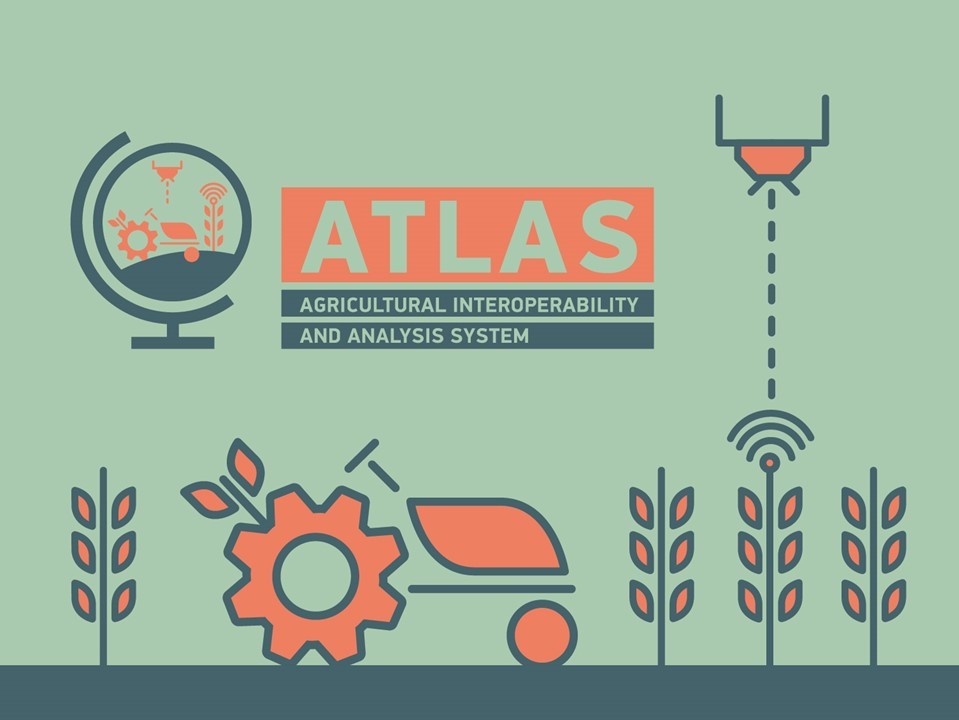The ATLAS Horizon 2020 project on the doorstep of the new year
The ATLAS Horizon 2020 project https://www.atlas-h2020.eu/(opens in new window) will build an open, distributed and extensible data Interoperability Network, based on a microservice architecture which will offer a high level of scalability from a single farm to a global community. The technology developed in ATLAS will be tested and evaluated within pilot studies on a multitude of real agricultural operations across Europe along 4 relevant use cases: - precision agriculture tasks - sensor-driven irrigation management - data-based soil management and - behavioural analysis of livestock ATLAS will involve all actors along the food chain, simplifying and improving the processes from farm to fork. Through the support of innovative start-ups, SMEs and farmers, ATLAS will enable new business models for and with the farmers and establish sustainable business ecosystems based on innovative data-driven services. Here are some of the latest achievements and details on our project. The foundation stone for the establishment of the ATLAS Innovation Hubs (IHs) will be laid by all 5 Innovation Hub partners from Germany, Greece, Latvia, Romania and Switzerland within December 2020. The Innovation Hubs pursue the goal of making the ATLAS use cases with their specific topics in the different countries known to a broad stakeholder group. The basis on which the Innovation Hubs operate is described in the “7 fields of action of the Innovation Hub”. All Innovation Hub partners are at the moment creating the necessary conditions for the IHs to be operational by spring 2021, when the first use case in the ATLAS demonstrators will be established. The specification for the ATLAS API (Application Programming Interface) is provided through so-called “Service Templates”. Service templates describe a unit of semantically related agricultural or technical functions. The templates enable a service consumer to communicate with any service implementing the same template without requiring any specific code, giving the end-users the choice to pick the service that best meets their specific needs and budget. A crucial component of ATLAS is the design, implementation and application testing of a sensor system that can be coupled to tractors and narrow-tracked vehicles. The sensor box is intended to use optical sensors or a 3D vision system, consisting of RGB-D depth cameras and a stereo camera to generate a spatial image of the driving route, in order to enable autonomous operation of the vehicle. At the same time spectral indices of the soil, plants and plant components are to be recorded. Different spectral cameras can be used to capture these indices. Τhe multi-sensor box is designed to be compatible to different spectral cameras that will provide indices with information to farmers about soil moisture, chlorophyll content and drought stress of the plant. The information of the spectral indices and this “digital twin” of the field or plantation can be merged. In this way, a volumetric estimate of the yield can be calculated.



